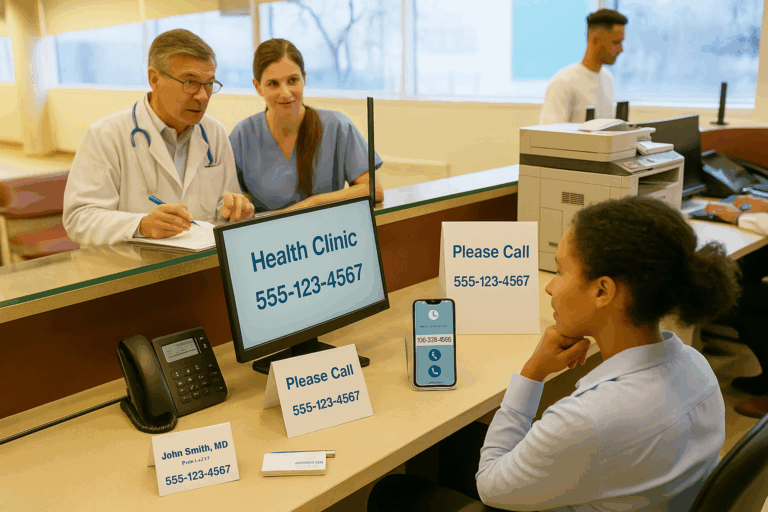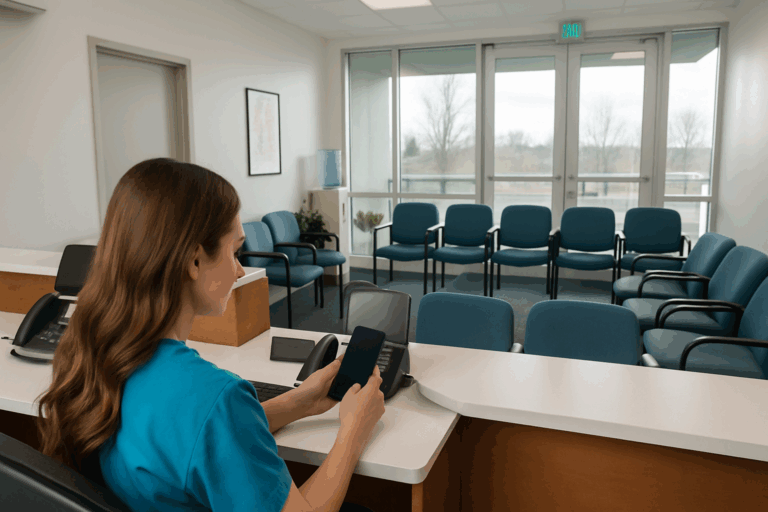One in five adults in the United States lives with a mental illness. It takes many of these individuals an average of 10 years after the onset of symptoms to procure treatment.
Anxiety disorders are the most common type of mental health condition in the U.S. They’re highly treatable, but only about 40 percent of those suffering from anxiety get treatment for it.
Stigma continues to be a barrier to individuals seeking mental health treatment, even as more celebrities, professional athletes, and other people able to reach multitudes with their messages share their struggles. A lack of available mental health providers is another substantial challenge in accessing care for mental illness.
The U.S. continues to face a shortage of mental health professionals — there are 350 individuals for every such provider. The sparsity is worse in rural areas, where many patients cannot access convenient and affordable healthcare. As noted by the Rural Health Information Hub, factors that may influence rural residents to avoid seeking care include:
- Lack of understanding and knowledge of mental illness, sometimes even among healthcare staff
- Prejudice or stigma towards people with mental health disorders, often based on fear and unease
- Secrecy about mental illness in the community and general hesitancy to seek care
- Perception of a lack of confidentiality and privacy in small towns with closely-tied social networks
The Convenience of Virtual Care
Although less utilized than it was during the height of the COVID-19 pandemic, virtual care is a convenient option for mental health treatment. Telehealth especially gives patients more expansive and private access to mental health resources.
For patients, telehealth offers 24/7 access to healthcare, reduced appointment and in-office wait times, more private access to mental health resources, less costly emergency care and an improved understanding of post-hospitalization care plans. For residents of rural communities, it mitigates the need for travel to access preventive and medical care and gives them better access to healthcare specialists.
Telehealth also extends flexibility to providers, including those reporting high levels of burnout, by enabling them to conduct visits away from their office when necessary. It allows them to see more patients in less time, resulting in increased reimbursement and patient satisfaction, and quickly and cost-effectively communicate with other physicians on patient care.
That’s not all, though. Through virtual care, healthcare providers can:
- Securely access shared records from a mobile device
- Quickly and cost-effectively communicate with other physicians on patient care
- Accurately record clinical data
- Provide more access to lower-cost care for low-acuity patient encounters
- Experience fewer staffing inefficiencies
- Promote easier access to specialists and subspecialists as necessary
Telehealth Security Standards
In a survey of physicians conducted by the American Medical Association (AMA), 60 percent of respondents agreed or strongly agreed that telehealth enabled them to provide high-quality care. Another survey found that one-third of physician respondents cited the security and privacy of patient information as one of their chief concerns for utilizing virtual care.
Security must be paramount for any mental health practice employing telehealth. Without a detailed and documented plan to keep protected health information (PHI) safe, healthcare providers risk costly data breaches.
A secure and user-friendly platform, RingRx Video can help you reach more patients, including those in remote or underserved areas, by facilitating remote appointments and telemedicine. It’s an affordable and HIPAA-compliant option for providing care to patients who cannot meet face-to-face or prefer the convenience of video.
Strict security standards are built into the core of our product, so your patient data is never at risk. We are also committed to maintaining the highest HIPAA standards, meaning you can safely and confidently communicate with patients and staff across all devices.
Healthcare VoIP in Practice
Not every patient who encounters mental illness wants to use virtual care to access their providers. Among adults who have used mental health care this year, more than half prefer to meet with a mental health professional in person rather than via telehealth.
Many mental health organizations let physicians use their devices for work purposes, a term called BYOD (Bring-Your-Own-Device). These HIPAA-covered entities are responsible for the confidentiality, integrity and availability of all PHI. Still, these three requirements of the HIPAA security rule can be compromised when doctors use their phone services instead of their practice’s phone system.
An increasing number of mental health practices are turning to HIPAA-compliant Voice over Internet Protocol (VoIP) platforms to streamline and secure their communications. Along with providing efficient call management, secure communication and enhanced patient engagement, these patient communication systems are equipped with advanced security features, such as encryption, to keep patient data secure during transmission and storage.
Case in point: Trauma Specialists of Maryland is a pioneering outpatient mental health practice that specializes in trauma therapy for clients across Maryland, Pennsylvania and Delaware. After experiencing frequent outages and technical issues that hindered patient communication and strained internal collaboration among the practice’s growing team, the switch was made to RingRx.
RingRx’s HIPAA-compliant VoIP phone system is seamlessly integrated with its operational workflows, including faxing capabilities and secure texting. Regular texting provided by cellular companies is not encrypted in transit and, therefore, does not meet HIPAA requirements.
By adopting RingRx’s VoIP healthcare platform, Trauma Specialists of Maryland has streamlined its operations, enabling staff to focus on providing high-quality trauma care to patients. Unlike Google Voice, a prominent VoIP phone service that lacks healthcare-specific features and only allows traditional two-way texting, the RingRx enterprise phone system was designed specifically for healthcare environments, offers unlimited inbound and outbound messages and adheres to the highest HIPAA standards.
RingRx offers a secure cloud-based platform for mental health practices of any size, enabling you to meet patient preferences — including virtual care through video, phone calls and secure messaging. Contact us today for a complimentary demo. Or, try us free for 14 days – no credit card required.
1. Anthem, Inc.
The costliest data breach in United States history belongs to this health plan. In January 2015, Anthem disclosed that a series of hacking cyberattacks resulted in the theft of 78.8 million patient records, including names, home addresses, dates of birth and Social Security numbers.
Along with the impermissible disclosure of ePHI, OCR found multiple other violations, from failure to conduct an enterprise-wide risk analysis and identify and respond to suspected or known security incidents to insufficient procedures to regularly review information system activity and inadequate technical controls to prevent unauthorized ePHI access. Anthem agreed in 2018 to a record-breaking settlement of $16,000,000 for a class-action lawsuit for the data breach victims and the penalty of $16 million paid to OCR for HIPAA violations.
2. American Medical Collection Agency (AMCA)
In 2019, AMCA provided notice of a data breach that affected 26,059,725 across multiple states. The company, a debt collector for medical service providers, including Quest Diagnostics and LabCorp, found that an unauthorized individual had access from August 2018 to March 2019 and stole sensitive data, such as names, payment card information, Social Security numbers and some medical test information.
AMCA was hit with a $21 million penalty, although it was suspended through a 2021 settlement with a coalition of 41 state Attorneys General. If the company defaults on the settlement agreement terms, it will be required to pay the initial amount.
As part of the settlement, AMCA agreed to create and implement an information security program, use a third party to perform information security assessments and continue cooperating with the attorneys general in investigations related to the data breach. It was also required to employ a qualified chief information security officer.
3. Welltok, Inc.
As noted by the HIPAA Journal, in May 2023, SaaS provider Welltok was the victim of a global cyberattack by the Clop group. The group exploited a zero-day vulnerability in Progress Software’s MOVEit Transfer file transfer solution to attack more than 2,600 companies globally. Through the breach, the hackers received unauthorized access to full names, email addresses, physical addresses, telephone numbers, Social Security and Medicare/Medicaid ID numbers and health insurance details.
The number of individuals affected by this breach was initially listed as 8,493,379, but that number has risen to 14,762,475. An OCR penalty has yet to be issued.
4. Kaiser Foundation Health Plan
A subsidiary of Kaiser Permanente, this health plan notified OCR of a data breach in April of this year that affected 13.4 million current and former patients. It’s the largest reported breach involving website tracking technologies. Data procured from the breach included names, IP addresses and sign-in statuses but no PHI or other sensitive data. The tracking technologies at the center of this breach have since been removed from the health plan’s websites and mobile applications.
5. HCA Healthcare
The largest healthcare system in the U.S. announced in July 2023 that cybercriminals gained unlawful access to an external storage location utilized to automate the formatting of its email messages. The hacking incident exposed the names, addresses, birth dates and other personal information of 11,270,000 individuals in 20 states.
Although no clinical or financial information was stolen through the hacking, multiple class-action lawsuits have been filed against the health system in numerous states. As of September 2024, OCR is still investigating the incident.
Remain HIPAA-Compliant with RingRx
At RingRx, our HIPAA-compliant phone system was built exclusively for healthcare practices and guarantees compliance. Upon starting your service, we offer a signed BAA, meaning you don’t have to worry about security when communicating with your patients. Our goal is to help you update legacy phone systems and modernize your practice, all while staying 100 percent HIPAA-compliant.
Start your free 14-day trial of RingRx




